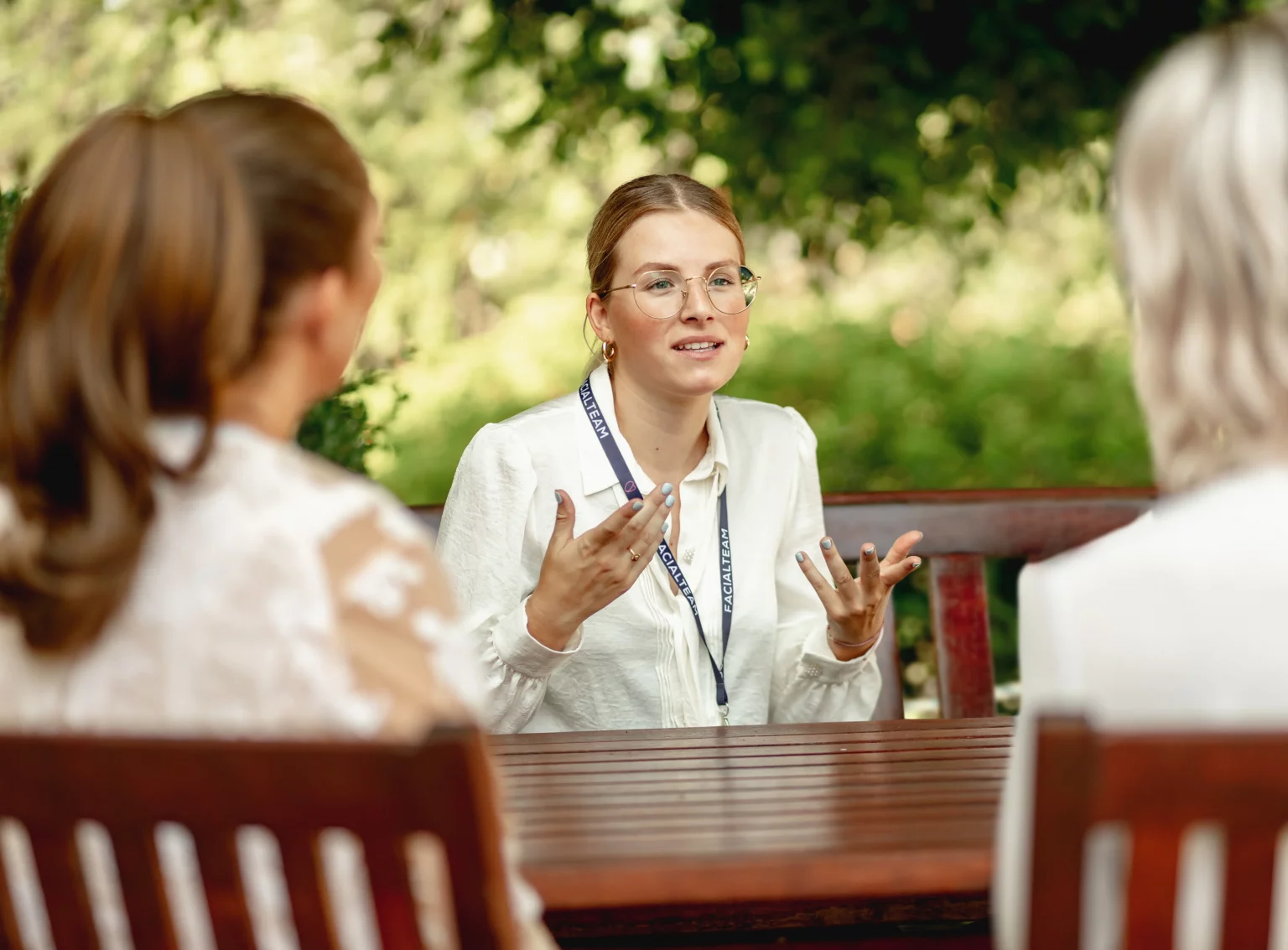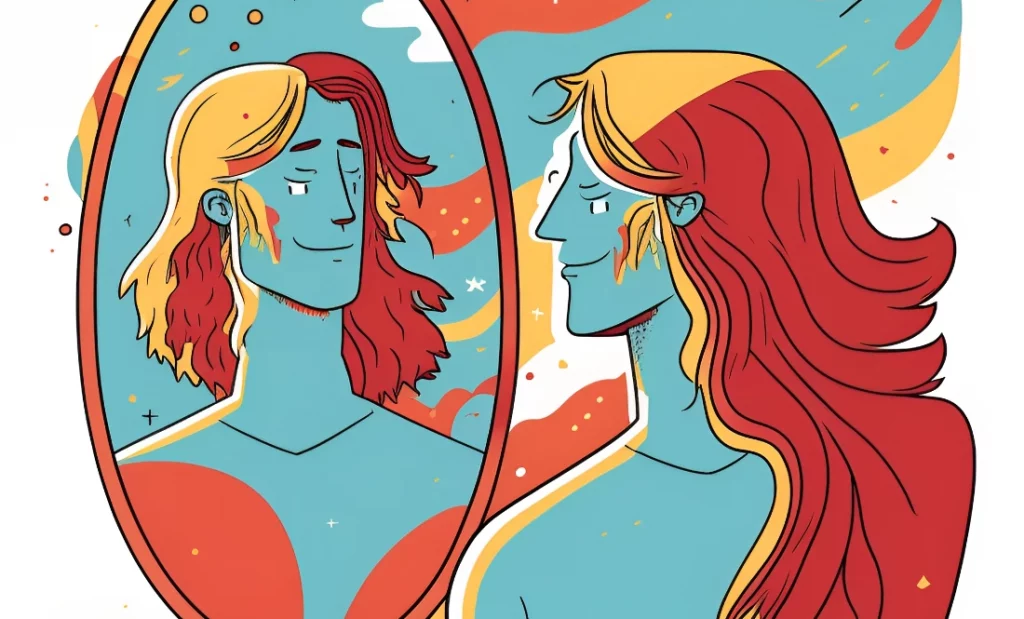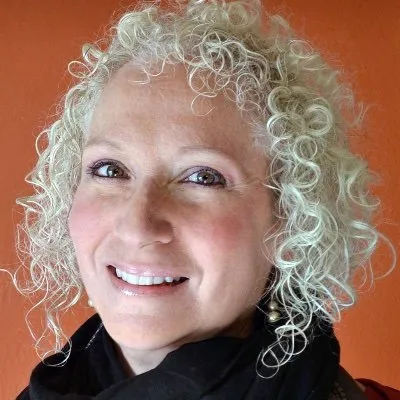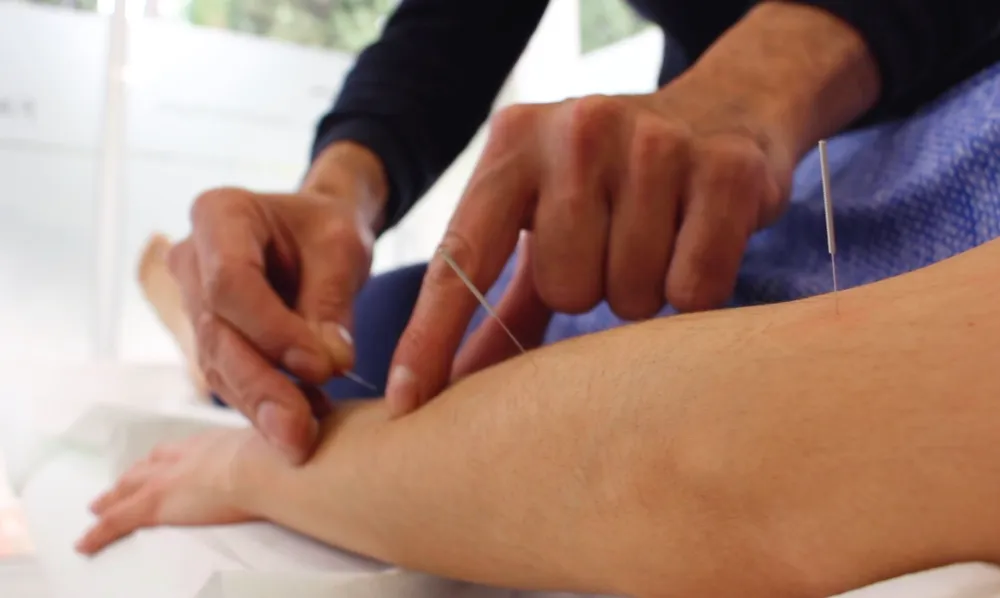Support Groups for Transwomen, where to find them and how they help

You or your loved one are having FFS Surgery and are totally terrified. You are not the first, so don’t hesitate to talk about it. In fact, a support group for transgender people and their partners, families and friends can help in so many ways.
Transgender support groups can provide a sense of community and validation for individuals who may feel isolated due to their gender identity.
What are Transgender Support Groups and Who Are They for?
Transgender support groups are safe havens for people who identify as transgender, non-binary, or anywhere on the LGBTQIA+ spectrum. In these groups, members can openly discuss the unique challenges they face and offer support, advice, and friendship to one another.
Common topics include coming out, the challenges of transitioning, and living as a transgender person. Gender diverse, gender expansive, gender nonconforming and people with (or without) gender dysphoria have created a wide variety of peer support groups and associations. However, parents, partners and other family or friends can also benefit from group support, especially during critical moments like surgery.
How do Transgender Support Groups help?
Psychological care in gender transition contributes to your physical and mental health, both during and after your FFS surgery. Transgender support groups provide a much-needed sense of community for those individuals who are struggling with their gender identity.
In addition to offering emotional support, these groups can also provide practical information about transitioning, hormone therapy, and other medical procedures.
For a trans person, joining a support group is an essential step on their journey to self-acceptance. For companions, a peer support group helps them come to terms with the changing reality.
The transgender community continues to fight for equal rights and acceptance. There are many support groups out there that can help transgender folks and people who are close to them feel understood.
Different types of Transgender Support Groups
There are many types of transgender support groups, each with its own focus and goals. Some groups focus on providing social support, while others focus on advocacy or education.
Some groups are for transgender people only, while others are for partners of trans people, family, friends, trans health professionals and allies. Here are some of the most popular types of transgender support groups:
- Social support groups: These groups provide a safe and supportive space for transgender people to connect with others. They may offer activities and events, or simply provide a place to chat and make friends.
- Advocacy groups: These groups work to advance the rights of transgender people and raise awareness about transgender issues. They may engage in lobbying, protests, and media campaigns.
- Educational groups: These groups work to educate the public about transgender issues. They may offer workshops, seminars, and other educational materials.
- Family, partners, parents and friends support groups: These groups provide support and information for family members and friends of transgender people. They may offer resources on how to be a supportive ally, or simply provide a place to talk and share experiences.
What happens in a Transgender Support Group?
A psychologist or other moderator simply encourages those who wish to share their experiences, feelings, emotions, uncertainties and joys with each other. But it is fine to just listen to other peoples experiences too.
In a trans support group, you can expect to find a safe and welcoming environment. There may be opt-in chats, calls, and meetings on many topics and with an array of people with unique identities. Expect to make friends!
Debate within the community is a healthy and necessary contribution to communicating the reality of trans people. Conversation generates precisely that trans visibility which increases understanding and acceptance of the community.
Transgender Support Groups at Facialteam
At Facialteam we offer several types of support groups for our patients and loved ones as part of our comprehensive care system.
- A 3600+ member Facebook Peer Group open to people at all stages of facial gender affirmation and their allies.
- Presencial/Online individual counseling: These are hosted by our team of psychologists. We like to have an idea of your emotional circumstances and address any specific emotional needs that can appear along the process. Talking about the stress, your concerns and your fears puts everyone at ease
- Group Support Sessions at Hotel La Villa: We want you and everyone involved in your transition to feel emotionally supported. Our psychologists organize Marbella’s FFS Patient group sessions to help people at risk of feeling isolated. These communal gatherings encourage bonds with others “in the same boat”. Sharing emotions and points of view is cathartic and builds a sense of community.
- Private online groups for FFS patients: this includes a chat group for all Hotel La Villa patients. Once home, patients may join our Discord group to share their experiences during the recovery process.
Your emotional and mental health is central to our care services. The effects of facial gender affirming surgery on patient satisfaction, expectations, self-perception and well-being is an important aspect of our quality control analysis.
Why Mental Health Support at Facialteam is Key
The facial feminization experience is called a “revelation journey”, a landmark in life when overwhelming emotions are revealed. Facial gender affirming surgery is part of a massive life change that often unexpectedly forces us to navigate submerged triggers of fear related to having surgery.
So it’s understandable that people will worry about how things will change. For this reason, Facialteam’s psychologists have developed mental health support programs for both patients and their companions.
Presencial support groups every week are a great way to navigate the waves of emotions during the FFS Surgery process. Individual sessions are also available in Marbella, upon request. This way, loved ones may benefit from the support too as they get accustomed to the multiple transitional phases of the gender affirming journey.
Support Groups integrate Family and Friends of FFS Patients
When your loved one transitions, you may feel at a loss of how to help as they are exploring their gender identity. Learning from the experience of peers and professionals is the next step.
Family is who we choose to be closest to, not always who is a blood relation. As the African proverb states, “It takes a village to raise each and every person”. That’s why Facialteam’s support groups welcome anyone the patient considers to be family, be it companions, significant others, parents, partners or those dearest to you during transitional moments.
Our support sessions bring patients and their companions together for helpful discussion, they are not just for the person having facial feminization surgery.
The patient’s companions, partners, parents, family, or friends are inevitably also experiencing their own adaptation period parallel to their loved one’s gender exploration process.
When is Mental Support Offered at Facialteam?
We offer support sessions during the 3 critical phases of your transition, as part of our comprehensive care package.
- Before surgery, support sessions form an integral part of our comprehensive care. We like to have an idea of your emotional circumstances and address any specific emotional needs that can appear before surgery. Talking about the stress, your concerns and fears in a group setting puts everyone at ease.
- During the visit for surgery, we want you to feel emotionally supported, as well as your relatives and companions too. You are not alone, as the FFS visit is a unique moment when sharing experiences with others in the trans community is cathartic and builds strong, lasting bonds. In parallel, our professionals who moderate the weekly sessions are better able to detect when a member might be in need of extra help.
- During the long-term recovery, we pursue scientific objectives also in order to understand your internal journey better from a professional psychological perspective. Evaluating expectations of the effects of facial gender affirming surgery on the patient’s self-perception is important to advancing the facial feminization field.
How can I find a transgender support group near me?
The transgender community is often misunderstood and, as a result, many trans individuals feel isolated and alone. Fortunately, transgender support groups can provide some of the solidarity that people who are marginalized from society need when facing depression. These groups can provide a sense of community as well as offer resources about other transgender-related issues.
Find the Best Transgender Support Groups
The best transgender support groups create an environment of understanding and acceptance.
Educational resources, advocacy opportunities and networking events build a base of confidence for people navigating a gender transition. Members of trans support groups often report feeling more connected socially and are more likely to encounter advice regarding employment as well as healthcare.
Some of the best transgender support groups include:
- Facialteam Peer Group is a long-standing community of +3600 transfeminine peers and their companions on Facebook. Moderated by former Facialteam patient, Sarah O’Connell.
- Queer Doc offers a list of virtual, online transgender support groups
- Meetup is great to find events or groups on any topic. Just type in what you’re looking for and the location so a list of upcoming events will pop up.
- Center Link strengthens, supports, & connects LGBTQ Community Centers, offers a map with community centers in the US.
- Trans Lifeline is a national trans-led organization that connects trans people in crisis with trained counselors
- The Trevor Project provides crisis intervention and suicide prevention for lesbian, gay, bisexual, transgender, queer & questioning (LGBTQ) people under 25. They offer 24/7 crisis support services by trained counselors.
- TWOCC, is the Trans Women of Color Collective.
- PFLAG National is an association in the USA with 250,000 members and supporters. They are working to create a caring, affirming world for LGBTQ+ people, their families, and allies.
Find transgender support resources
Besides support groups, nowadays there are many other initiatives from organizations working for trans equality. Below list provides resources for transgender support which come in handy for trans individuals as well as their partners, parents or other loved ones.
- Transgender Equality Network is a non-profit organization dedicated to improving the lives of transgender, gender non-conforming, and non-binary people.
- Transgender Law Center is the largest American transgender-led civil rights organization in the United States.
- Transgender Legal Defense and Education Fund is committed to ending discrimination based on gender identity.
- International Foundation for Gender Education advocates for freedom of gender expression and promote the understanding and acceptance of All People.
- National Center for Transgender Equality is the leading social justice advocacy organization winning life-saving change for transgender people.
- Gender Spectrum provides education, training, and support to help create a gender-inclusive world for all children and youth.
- GIRES, the Gender Identity Research and Education Society in the UK has been active for over 25 years.
- TGEU, the Transgender European Union is a nonprofit federation of international associations advocating for equality for trans citizens.
- GATE, is an international advocacy organization working with the UN towards justice and equality for trans, gender diverse and intersex communities.
We hope this article contains useful resources and information to help you and your family take the next step on your journey. If you would like to speak with peers or just read about their experiences, sign up for our Facialteam Peer Group on Facebook now. It’s quick, free and welcoming.





